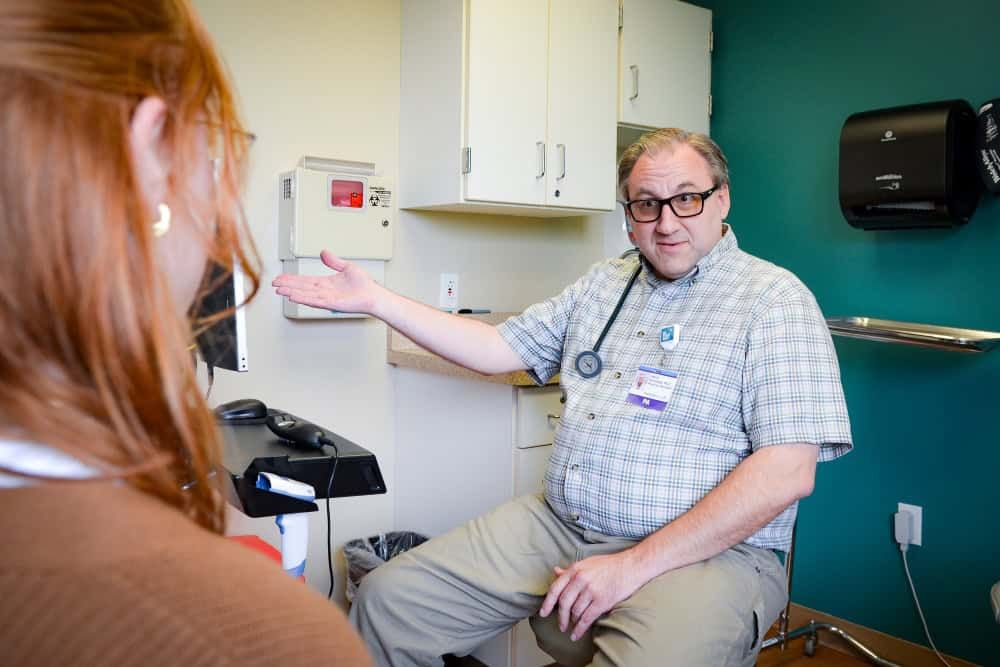Primary Care
Want to learn more about this at Kettering Health?
At a Glance
Q: Why do doctors review your medications at every visit?
A: Confirming your medication list helps prevent harmful drug interactions and explains symptoms. Always share prescriptions, over-the-counter drugs, and supplements.
- Even vitamins and supplements can affect prescriptions.
- Smoking or alcohol can cause dangerous side effects.
- Stopping a medication without telling your doctor complicates care.
No matter what you’re there for, every doctor’s visit begins the same way: The nurse takes your blood pressure, checks your oxygen levels and other vitals, and confirms your list of medications.
Reviewing your medications list at every appointment might seem tedious, but Jason Schofield, a primary care physician assistant, says it’s for a good reason.
“I know that many patients feel that there’s this magical chart out there where we have all the information,” he says, “but when we have other provider and emergency room visits outside the system and patients changing things on their own, it’s a good idea to always confirm that list.”
Jason explains why discussing your medications with your medical provider is important.
Avoiding interactions
When starting a new medication, your provider will confirm your current prescriptions to avoid possible interactions and side effects.
“All medications have a certain amount of risks,” Jason says, “and your medical provider always considers those risks.”
Along with your prescriptions, you should share anything you take over the counter. Even though you don’t need a prescription for medicines sold at the store, your doctor still needs to know that you’re taking them.
“Some medications over-the-counter actually do more harm or carry higher risks than what we can offer,” Jason says.
This includes any supplements you take since they can make your prescriptions ineffective.
“Even if it’s a calcium pill,” Jason says. “That will interfere with the absorption of certain antibiotics.”
It’s also important to be honest with your provider about your smoking and drinking habits, as many medications have strong, sometimes life-threatening side effects when mixed with these substances.
“Smoking on birth control,” Jason gives as an example, “can cause terrible blood clots.”
Even if you’re not starting a new prescription, discussing your medications with your provider means they can help you feel better sooner.
Understanding symptoms
If you’re experiencing any new symptoms, your medications might be to blame.
“Many times,” Jason says, “people are having complications because of their medications.”
This is especially true for over-the-counter medications and supplements. According to Jason, something as simple as too much vitamin D can cause problems like reoccurring kidney stones.
You should also tell your provider if you stop a medication.
“When we don’t know that,” Jason says, “we can’t understand why your blood pressure didn’t get better or why your glucose levels didn’t improve. So we start looking at other sources and it really complicates the situation.”
Jason explains that medical providers are there to help you, but they need your help to do so.
“We are a partner in your health.”
Making sure they know exactly what medications you’re taking is a great place to start.










